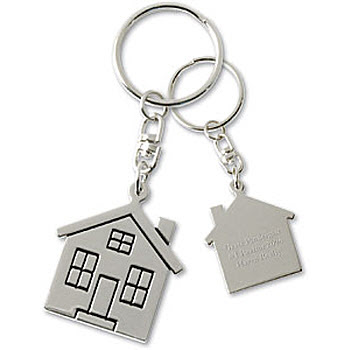
Any property up for sale must be "libre de cargas" which literally means "free of charges" but can imply an unencumbered property or that which has no outstanding debts from the seller. A notary will always draw attention to this point, having checked over the deeds to previous sales of a property or the deeds of a new dwelling.
Often, a rental or indeed a purchase of a property will require an "aval bancario" which can mean two different things.In the case of a rental property, this means that the renter can deposit a said amount (which is usually one month's rent, but can be more) into a bank account which cannot be touched for the duration of the rental period. This acts as a safeguard to any landlord who may have invested a fair amount of money on a new property to ensure deadlines are met, but can equally be used by any owner as a legal practice.
In a property sale, the term means something altogether different. An aval in a sale means that a person or persons, literally "vouches" for you in that you will make any repayments on a mortgage and has to offer either a cash sum , or another fully unencumbered property or part of said property as a guarantee in case payments are missed. This typically happens with first time buyers, and is standard practice if a first time buyer (or often second, or third) has little or no down payment towards their desired property purchase.
As mentioned, a "deposito" refers tom a down-payment that a potential buyer has to offer in exchange for a home loan/mortgage on a property.
When you hear the word "arras" this refers to an amount of money which is given to an owner of a property from an individual or group who has the intention of buying a property as an initial commitment for the sale. This is typically a percentage of the total price of the property and is used as a measure of trust, severity and commitment towards the sale of a property. Once "arras" are given, a property is taken off the market and each party establishes a given time to which the sale must materialise - to the contrary, the seller is legally entitles to retain the amount given in arras. This is a serious part of any sale and must not be taken lightly. Both parties sign a "contrato de arras" which is a legally binding document.

The "fecha de firma" of the "date of the signing" is the date programmed for the signing over of the deeds as a legal procedure and is when the potential buyer becomes the new owner. This date is usually set in the "contrato de arras" (see above) and cannot be exceeded without penalty. If both parties agree, this date can be extended without penalty.
Finally, on the day you will receive the keys to your new home, you will stand before a notary or "Notario" who will (very quickly) review the past deeds to a property (known as the "escrituras", share details of the general "compra-venta" (sale of a property) and then detail separately, the conditions of any home loan/mortgage which is to be initiated by an accompanying financial entity. This process can take place either in the notary's offices or the offices of the bank/building society ("caja") depending on each preference/proximity. After a week or two, and after application of the deeds within the property registry "registro de propiedad" is complete, the buyer and seller can collect a "copia simple" (draft copy) of the deeds which are often necessary to begin life in a new property such as signing up for utility bills, etc., accrediting change of address, etc.
It is very important to have documentation on the day of a signing over of deeds, and often is better to have local documentation if possible. For example, in Spain a national identification document (DNI, or NIE for foreigners) is proof of identification. Be aware that although a Passport is also a widely accepted form of identification, the document does not necessarily retain the same serial number upon renewal, which may present problems of identification within documents later in life. NIE or DNI is always the same for a person for the duration of their life under Spanish law, meaning this is easily the preferred option, if at all possible.
If you don't fancy your chances against such possible complications, and would rather a proessional take care of things fro you, then contact Luxury Barcelona Real Estate Agency, Modus Vivendi, who have an outstanding selection of the best properties for sale in Barcelona as well as an ample portfolio of long term rentals in Barcelona. Their professional service will ensure you are always in the know about the process of buying or selling, and will not have the wool pulled over your eyes.




0 comments:
Post a Comment